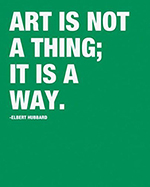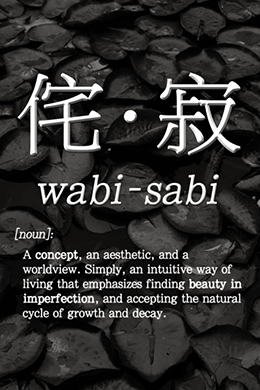LETTERS FROM THE GLOBAL PROVINCE
Re-igniting Beauty, Global Province Letter, 7 October 2015
In a billion years, when
The sun's fire dwindles
And ash blows across its surface
When the moon will no longer wane
And the land not rise
When like a cold, burnt-out piece of coal
This earth revolves, lost in its gyre,
Trailing a dying sepia glow
I think then
If a poem written on a piece of paper
Was to waft along
And perchance land on the sun,
The sun would ignite again!
Matteo Renzi. Matteo Renzi, Italy's current prime minister, is the youngest head of government since Italy became one country in 1861. With Machiavellian cunning and irrepressible energy, he has already brought a host of reforms to the national government, smashed a few of the corrupt and inert politicians who had put Italy into a fix, and upended almost everything in sight. He has an almost artistic view of his job, as if he were painting and sculpting a new republic. He's said, "Dostoyevsky wrote that beauty will save the world. Let's see if it can save Europe, too." Indeed, he has been known to take visiting foreign leaders for a tour of the Uffizi, stopping to contemplate Botticelli's "The Birth of Venus," topped off by a visit to the Academy of Florence to take in Michelangelo's huge statue of David. Beauty, he hints, has something to do with healing Italy and forging it into a functioning country.

How to Turn a Sow's Ear into a Silk Purse. Fifty years ago or so Arthur D. Little, then the blue chip technology consultancy in the country, published a vest pocket booklet that is the finest promotion piece we have ever seen. The techies at Little did just what the booklet said: they took a sow's ear and made it into a silk purse. Little, by implication, was suggesting it could put its magic to work for all of us, making something wondrous from very base elements.
We think that's a central task for our countrymen. Converting our wasteland into a thing of beauty. Our country and its economy have been savaged by mass market thinking that churns out the mediocre, by real estate developers who raze forests and erect cardboard homes that are neither substantial nor attractive, and by a cancerous, overblown financial sector that consumes excessive resources but has weakened every product and service made in the U.S.A.

There is plenty of evidence that beauty can make something out of nothing. SoHo, once a worn out warehouse district of New York City, today is a diverse and interesting shopping district, because artists and galleries moved in and put a sheen on its tortured streets. What's more, the district remains fertile and interesting, not suffering the fate of common city redevelopments across the United States where barren streets and sterile buildings add up to less than nothing. The artistic and varying effect of creative hands has made SOHO as interesting as the Cast Iron District that preceded it.
As well one can go to the ghostly town of Abiquiu in New Mexico, which looks like it is waiting to fall down and be swallowed by the earth. Yet in the midst of this ghostly town one finds BossHard, a commercial gallery full of Asian furniture and other imports from the Far East. Truly it can be said that it is the one reason for going to Abiquiu, even though the home of the artist Georgia O'Keefe is next door, perhaps the other place worth a visit in town. Once again, it is art and beauty that holds out promise for tattered America.
The October 15 issue of Wired Magazine features "Cities by Design," claiming that good cities no longer happen by accident but are the product of tight design by professional experts skilled in putting cities to rights. But the gimmickry pictured does not really seem to make a Los Angeles, or Shanghai, or Medellin either wonderful or livable. We see there the cookie-cutter design of narrow- minded experts, not the beauty of artists. We can only fear for cities remade in a non-organic way by functionaries with narrow imaginations.
Wired incidentally does a number of issues on design matters, which is a paradox in itself because the magazine itself is not attractive, is very hard to read, and is littered with ghastly design. There is a terrible irony afoot that allows a magazine that is visually banal to lecture us on anything to do with design. This is one of the hurdles we have to surmount if we are to have beauty. That is, we have to make sure sow's ears are not mistaken for silk purses.

Bringing about Beauty. Infecting our streets and landscape with beauty is no little task. Ugliness is rather easy to create, and to duplicate. Beauty not only requires an eye for the wonderful, but demands of us that we make one of a kind objects, houses, cities, interiors.
Moreover, it even requires a rethink as to what constitutes beauty. For instance, streamlined objects where one house, or one dining plate, or one lamppost looks like another is antagonistic to the essence of beauty. The Japanese have come to understand this. Hence, they have nurtured the concept of wabi sabi where a blemish or irregularity is the finishing touch for something that is meant to rise above the ordinary, setting it aside from all else.
Wabi sabi is just one illustration of the kind of things we must think about if beauty is to flow through our lives. For beauty to happen we must begin to think and feel about it.
P.S. In future letters, we will come back to the subject of what makes beauty happen in the face of mediocrity.
P.P.S. The Impressionist scholar and longtime head of the Sterling and Francine Clark Art Institute in Williamstown—Professor George Hamilton—cut to the quick when speaking out on what made for great art. We were always impressed that he claimed great art did not happen unless you had a great audience. For us to have great beauty in our lives, there must be a sufficient congregation of worshippers whose hearts and souls vibrate in the face of beauty. Surely the hapless Italians produce an endless stream of beauty because of a deep-seated penchant for great art residing in its rulers throughout the ages.
Home - About This Site - Contact Us
Copyright 2015 GlobalProvince.com